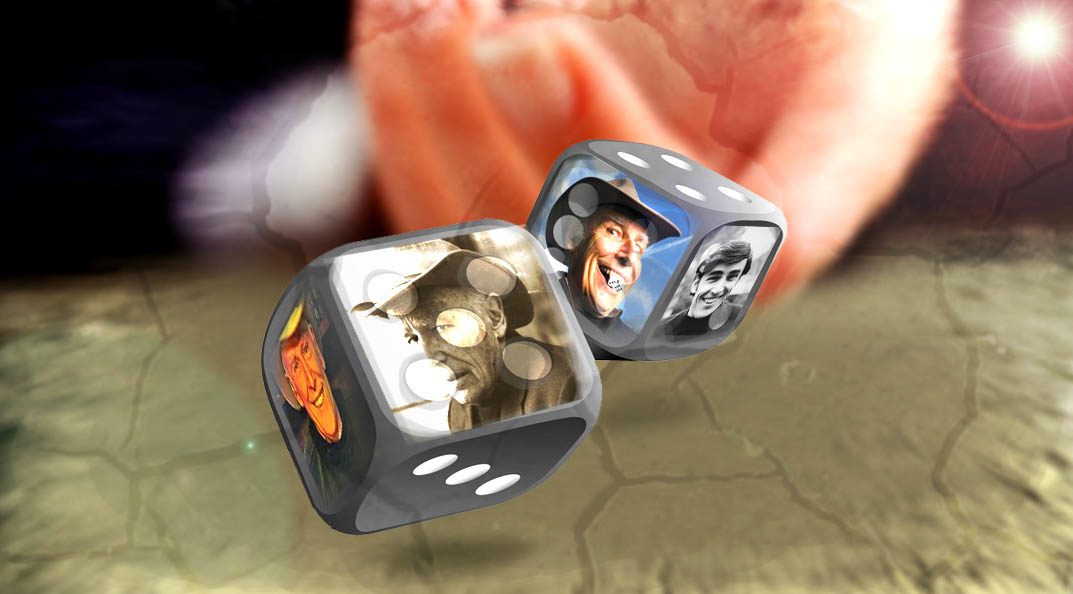THESE TWO QUESTIONS AND ANSWERS COME FROM AN INTERVIEW WITH ROB WRINGHAM FOR HIS MAGAZINE THE NEW ESCAPOLOGIST (See www.newescapologist.co.uk)
Upside: What have been the best things to come from the invention of Luke Rhinehart?
The invention of Luke allowed me to become much freer from the single personna of “George.” The invention of Luke and his dice theories allowed me to experiment with life as did my fictional creation. As Luke poured forth from my imagination, the possibilities of life opened for me as they were opening for Luke. Luke began expressing thoughts and formatting ideas that until they poured out onto the page hadn’t particularly occurred to me. Luke was able to express thoughts that the conventional George could never have expressed. Luke was able to see the comedy of his passion for expanding human possibilities while George was always tempted to take it seriously. We traditionally say an author creates a character whereas my experience is that sometimes a character like Luke is creating me as much as I him. When I discovered Luke’s “voice” as I began writing the novel, I was in effect discovering a new self. 
The invention of Luke created in me a new being and thus enriched my life. So too when I created Whim (or Wim) was I enriched. One could argue that these characters and beings already must have existed in me, but the fact is that until they suddenly appeared on a written page I
didn’t know they existed. And my life was less for their absence.
Downside: What have been the worst things to come from the invention of Luke Rhinehart?
“Worst” is too strong a word. The question might better be “What is the single most significant downside of the invention of Luke?”
That downside would be, paradoxically, the result of the best things that came from the invention of Luke: when one discovers a new, enjoyable and, worst of all, successful personna, then forces both within oneself and within the society reinforce the temptation to “be” this personna all the time. Any person you think you have to be is a straightjacket. If you think you have to be Jesus everyday then this Jesus will become stale and ultimately crash. If one has to be a diceman then the diceman will become a burden. One reason I insisted to my annoyed publishers that Luke Rhinehart had to be the author of my novels was so that where ever most people had never heard of Luke I could be free to be George . I wouldn’t get stuck playing the role of author. And so it has been.
The fictional Luke is always upbeat, usually witty and laughing, always changing. No actual human can be this way. I think one of the strengths of the novel is that the Luke character is not realistic but rather a mythical figure, one larger than any of us can ever be, but thus showing us a path not to a life like his, which is impossible, but to a richer, more varied and creative life than the one we have been leading.
So the downside is that in “pretending” to be Luke (often for mere commercial reasons), I sometimes limit myself and my life in ways that are the opposite of the Luke of the novel.




